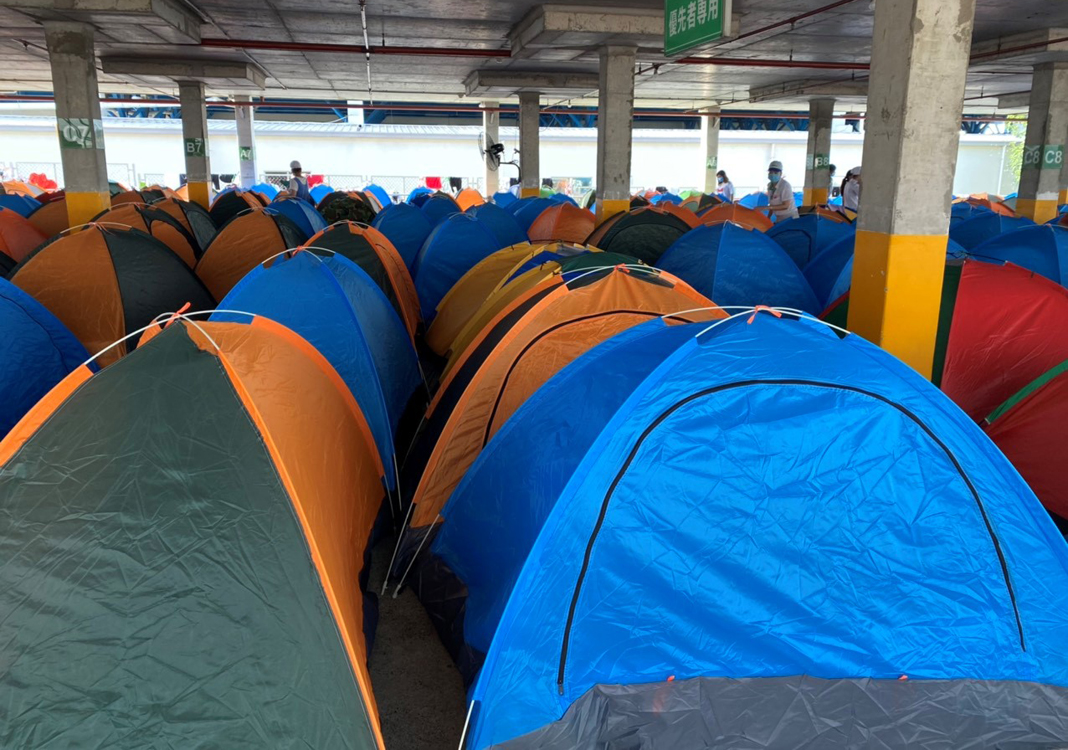To cope with the ongoing Covid-19 outbreak, enterprises may have to retain their personnel to keep operations going on. Many in industrial parks are likely to request their work force to stay in the companies’ premises. This is a rare case which is both sensitive and relevant to HR (human resources) management. The following article discusses some related aspects of this issue.
Requesting workers to stay in companies’ premises or factories has to comply with a host of legal issues. The Labor Code, collective bargaining agreements, collective bargaining agreements in the respective industries, working regulations and labor contracts often state specific working hours and the locations of the workplaces. So, what is the legal basis for workers’ staying round the clock at their companies’ premises?
First, aside from the working hours agreed in contracts, how about the remaining time during the day? If this duration is considered working time, it is incompatible with current labor regulations. Otherwise, however, it would be unfair to workers.
Secondly, freedom of residence is stipulated in the Constitution and the Law of Residence. Therefore, how come an enterprise requests workers to stay in its premises?
Decree 82/2018/ND-CP on the management of industrial parks and economic zones rules that no residents are allowed to live in these facilities.
Therefore, by requesting its workers to stay inside companies’ premises or factories, the business in question has to solve the problems of legitimacy and HR retention. Is there a way out for this? If a company only relies on its acknowledged rights, is there still a solution to this problem? Actually, effective labor laws and regulations allow workers and enterprises to reach such agreements.
To comply with current regulations, businesses need to secure an approval from the competent authorities on the staying of workers inside companies’ premises. Moreover, businesses have to enter into an agreement, either on the individual or collective basis, with workers, which clearly states the practical situation of the enterprises and deals concluded by the employer and the employees. The actual working time is the same as that previously stated in the labor contract while the rest of the day is not working time. There are also the problems of the costs of accommodation, foods, personal belongings, cultural activities, information and entertainment, etc.
Another important issue involves epidemic prevention measures. Enterprises have to adequately provide necessary medical products on site as stipulated by health authorities and local governments. Also in need are regulations on daily life and activities of workers, such as security and order.
The signing of this agreement should conform to stipulations on legal procedures and corporate regulations. An individual agreement needs the signatures of the related individual and the business’s representative. A collective agreement needs to comply with corresponding formalities of the agreement stipulated by the Labor Code.

Other relationships that also need attention
Legally speaking, once an agreement is signed by the parties involved in the form of a document, this agreement is an evidence of the voluntarism, or willingness, of the signatories. Without a proof of a worker’s or workers’ signing it against their will, the agreement is legitimate and valid.
However, in this case, workers may sign the agreement reluctantly because each of them has their own personal life and family. Staying in companies’ premises means workers have to lose part of their freedom and family life.
Workers with their own families have to try their utmost to arrange their life as the family members at home have to shoulder all the household chores or other affairs which are normally done by the workers in question.
Some workers having to live inside factories may also have to face family crises. Their loved ones may bear bigger responsibilities or face biggest risks because of their absence from home.
In some families, marital relationship may become stormy and fragile on account of the workers’ absence from home, and finally result in divorces.
If the business in question is to meet only legal regulations, it abides by the law but it does not fulfill its ethical obligations to their workers. An enterprise should also take action in order that the work force is aware of and feel sympathy with the situation the former is in. Also, the enterprise’s management should communicate with workers in a way that the latter understand the difficulties their employer has to confront presently.
Meanwhile, workers’ family members are in a disadvantage so that the enterprise in question can work normally. They deserve therefore compliments from the enterprise.
Action taken by the business in this case to express sympathy and compassion to workers’ family members should be in a way the business thinks appropriate to its corporate culture, the current state of the pandemic and the costs the enterprise has to bear.
HR management of an enterprise in line with legal regulations and humanity is the key to a stable work force. This stability is the ground for businesses to receive support and consensus of their work force in hard times throughout its operations. It is also a yardstick for measuring the sustainable development of an enterprise.
By Phan Thi Ngoc Thang









